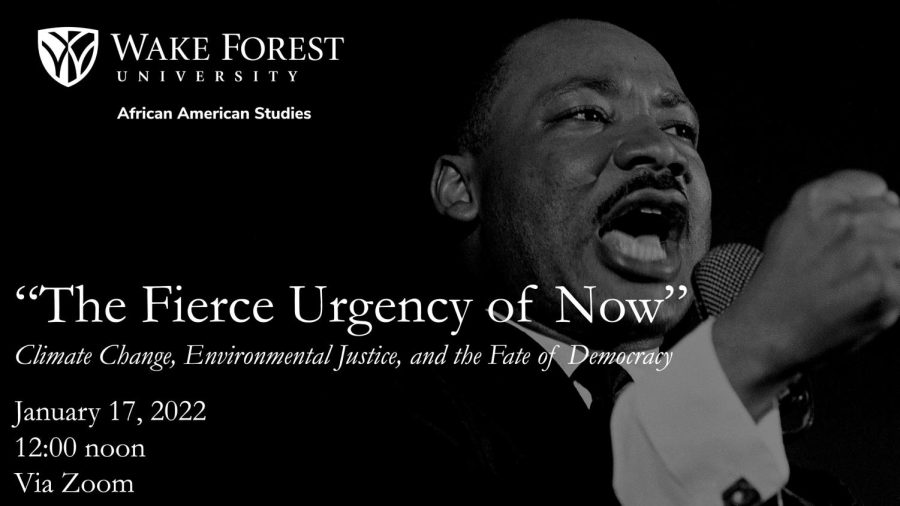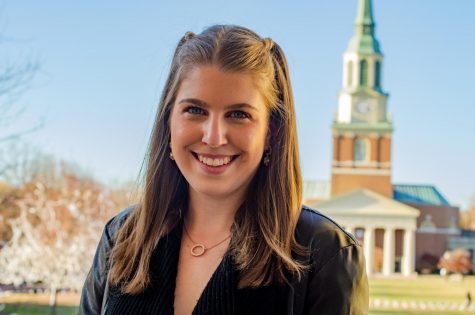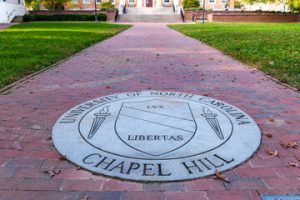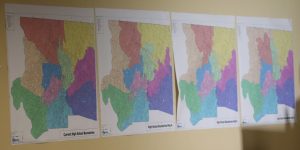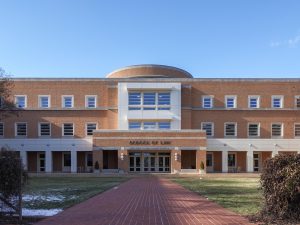Humanities Professor hosts climate change talk
Forum considers the urgency of environmental justice and its connection to democracy
“The Fierce Urgency of Now: Climate Change, Environmental Justice, and the Fate of Democracy,” explores the work of the Virginia Interfaith Power and Light.
January 20, 2022
“We are now faced with the fact, my friends, that tomorrow is today. We are confronted with the fierce urgency of now. ”
Wake Forest Humanities Professor Dr. Corey D.B. Walker commenced a climate change webinar on Jan. 17 by reciting this 1967 quote by Dr. Martin Luther King Jr. It seems King’s famous words persist all these years later in today’s conversation surrounding environmental justice.
Walker hosted the webinar entitled, “The Fierce Urgency of Now: Climate Change, Environmental Justice, and the Fate of Democracy,” which explored the work of the Virginia Interfaith Power and Light. The VIPL is an organization whose mission is to “collaborate among people of faith and conscience to grow healthy communities by advancing climate and environmental justice,” according to their website.
The webinar highlighted co-directors Kendyl Crawford and Dr. Faith Harris’ connections to the organization’s mission — and more broadly — their efforts to embody a similar vision to MLK’s call for urgency and hope for a united community.
“Perhaps this is our call to realize Martin Luther King’s dream of a beloved community on a planetary scale,” Walker said.
Crawford and Harris work with faith leaders and communities who continuously suffer environmental injustices, and as a result, a poor and destructive quality of life.
“We work with communities all over Virginia,” Harris said. “We recently started working with faith leaders and communities [in the southwest] who are fighting a critically important battle for their quality of life. They are inundated daily with noxious gasses from a landfill that actually keeps them from being able to sleep at night, and the fumes are so strong and overpowering that their children are vomiting.”
Harris continued: “We bring in the faith lens and encourage them to draw upon the power they already have and make that connection.”
Harris elaborated on a similar project she worked on, in Buckingham County, VA., which she details as a “perfect example of a new way of looking at this work.”
“We did work in Buckingham County [and saw] people that had worked all their lives, saved their money, followed the rules, participated in community and then there comes a possible compressor station — larger than anything that has been tested on — and these people experience an interruption of their peace.”
Later in the discussion, after detailing their work, Crawford apologized to Walker for expressing frustration regarding the issue of climate change being deemed political.
“We as people can’t live three minutes without air, three days without water or three weeks without food, so just the fact that we have politicized something that is so fundamental and basic to survival always astounds me and makes me very frustrated,” Crawford said.
She continued: “This should not even be political. What’s political about a breath taken? What’s political about your children having healthy food?”
Harris felt similarly to her co-director, asserting that the work they do comes not from a political place but rather a place of service.
“The work is really showing people the power they have to influence others, legislatures and administrators,” Harris said.
Walker furthered the conversation by asking the women about their work to inspire change in all individuals, specifically those apathetic to the presence of climate change.
“Trying to combat dualistic thinking is one of the things that is really important in building our theory of change,” Crawford said. “That dualism has gotten us into a lot of trouble. It limits what people are willing to work toward. That’s one of the things we are trying to do, widen people’s perceptions.”
Harris continued the discussion by presenting another obstacle that seems to challenge their vision: capitalism.
“What we face most often is people of faith or faith leaders who are more capitalist than they are Christian,” Harris said. “They are more concerned about wealth and power and garnering it for themselves — and maybe a few in their community — than they are about the call upon all creation to be that beloved community . . . we deal with a lot of apathy and conformist responses to the issue.”
Crawford further unfolded why capitalist thinking continues to affect humanity and the vision for environmental justice.
“Being up against white supremacy and capitalism — you can imagine — is a big hill to climb,” Crawford said. “I often think that if I were to design a problem that would challenge humanity the most, I would design something like the issue of climate change — something that requires a whole globe of people to work together — because, especially when you think about capitalism, you have materialisms, you have short term thinking, inequality and disposable people.”
MLK’s aforementioned 1967 quote continues like this: “ . . . Over the bleached bones and jumbled residues of numerous civilizations are written the pathetic words, too late.”
Inspired by MLK’s words, Harris and Crawford emphasized the notion that climate change will never be resolved until people “address, undo and create new systems,” as Harris puts it.
She suggested these new systems should focus on fostering our creative selves to engage economics, politics and social issues.
Crawford concludes by emphasizing the need for united, urgent action.
“You are needed; there is space for you and you are welcome,” Crawford said



